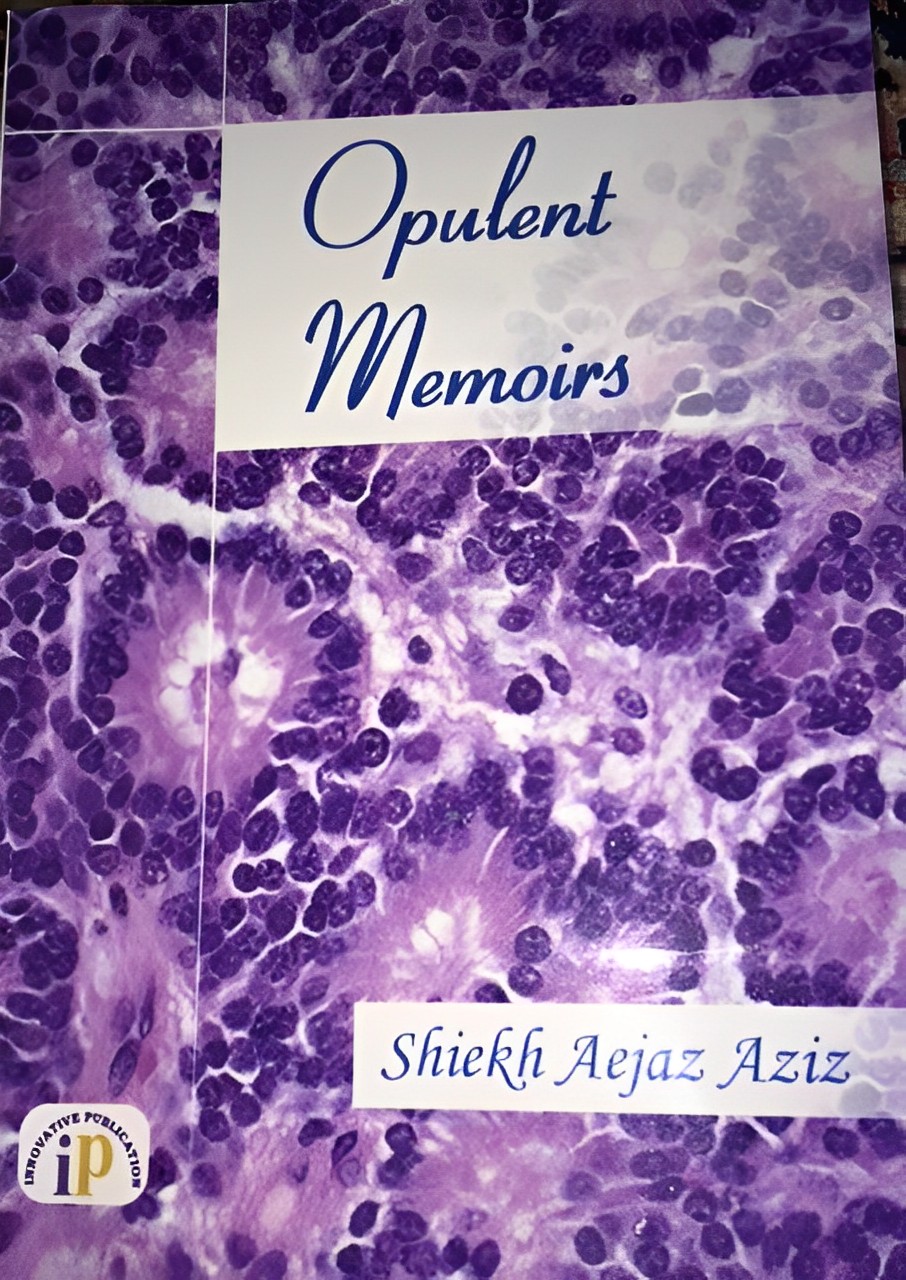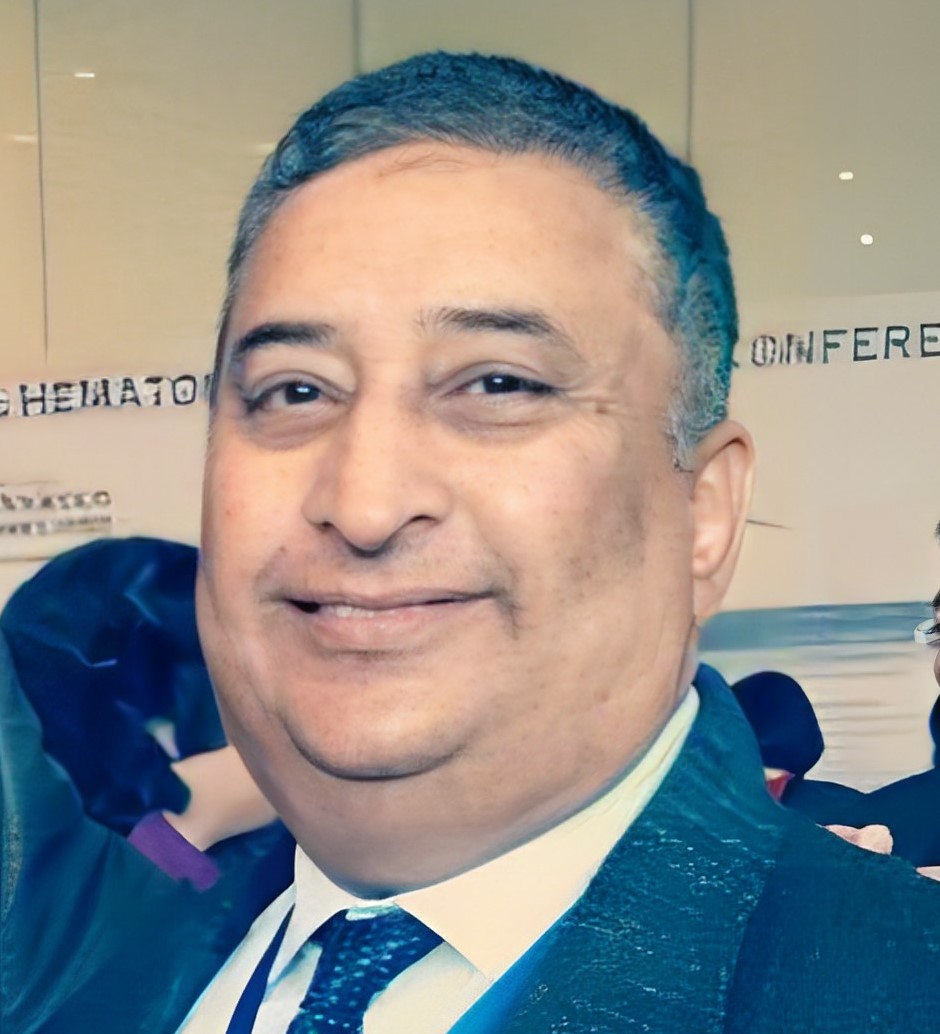Prominent oncologist, Dr Shiekh Aejaz’s self-published memoir offers harrowing glimpses of the tragedy and travails of nameless people who fought cancer, writes Shakeela Shawl
Reviewing an oncologist’s memoir is deeply unsettling, as it offers us a harrowing insight into the agonies and tribulations endured by those afflicted. Battling their inner demons, these individuals often waste away in their struggle. Cancer’s devastation knows no bounds; it engulfs the tranquillity of entire families.
Children, adults, and the elderly all attempt to navigate the shadows of death that cancer perennially casts. Here, death’s approach is a relentless assault, gradually tightening its grip and leaving patients and their loved ones emotionally paralysed by the dread of a painful demise. A cancer patient appears akin to a person on death row, a spectre of the chilling and callous hand of mortality ever-present in their thoughts.

Opulent Memoirs is a self-published book written by Kashmir’s distinguished oncologist, Dr Shiekh Aejaz Aziz.
Central to its contents is the theme, My Patients, wherein the author delves into the psychological, physical, and financial toll exacted by cancer. Its diagnosis disrupts every facet of life, causing havoc and instigating immeasurable suffering.
Dr Aejaz, a respected clinician, has held the helm of the Medical Oncology Department at SKIMS, Soura. His extensive experience is evident through his adept treatment of innumerable patients. His precision and composed demeanour magnetise patients to his current endeavour in private practice, where he continues to serve humanity.
The author expounds on the trauma inflicted upon female patients of childbearing age by cancer. Infertility emerges as a devastating aftermath of treatment, compounded by the additional burden of hair and limb loss, wreaking havoc on their mental well-being. Their daily struggle to reconcile with these losses casts a long shadow.
This is not to say that male patients escape this ordeal. They too endure this excruciating journey, etching their faces with anguish. I once encountered an elderly gentleman in a public hospital, seated on the cold, tiled floor, awaiting his turn for a PET scan. He lamented the day of his birth, cursing the cancer that had rendered him unrecognisable. While it may appear superficial, this is the grim reality.

The self-esteem of cancer patients tumbles alongside their hair loss. Throughout history, a full head of hair has symbolised self-worth. Monks, for instance, shave their heads and eyebrows as a testament to humility and surrender to a higher power. For the general populace, this cascade of locks carries profound significance. For many, leading a dignified life holds more value than mere existence.
As astutely highlighted by the author, the initial familial response to cancer often involves denial. However, concealing details regarding a patient’s physical condition, disease stage, treatment alternatives, and potential outcomes, while even requesting doctors to withhold such information, is an unethical stance. Patients are entitled to be informed about their ailment, the treatment process, and its potential ramifications. Their right to know should not be compromised by emotional pleas, he insists.

The author’s proposition that psychiatric counselling should be an integral component of the treatment regimen is undeniably pertinent. The imperative lies in integrating psychiatric counselling within the oncology departments of both public and private health institutions. This need extends not only to patients but also to caregivers, who shoulder significant responsibilities within the treatment plan. Caregivers, in addition to managing patients, must navigate financial challenges and grapple with the anguish of witnessing their loved ones’ suffering.
Cancer thrusts individuals into a state of helplessness; they exert every effort to shield their dear ones from this menace, yet frequently find themselves defeated. The aftermath of such battles leaves behind trauma, which permeates both the body and mind, culminating in an array of physical and psychological afflictions. In this context, timely psychiatric intervention emerges as the key to alleviating such torment.
Above all, cancer patients require psychiatric counselling both during and after their treatment journey. The spectre of recurrence casts a pall over their lives, rendering their nights sleepless and existence unbearable. The looming presence of mortality pervades every corner of their existence, making it challenging for them to live in the present moment. In this scenario, counselling serves as a balm to soothe their frayed nerves.
Commending cancer pharmaceutical companies and their representatives for their contributions to social welfare is a somewhat unpalatable sentiment. Cancer is not merely the emperor of all maladies; it is a substantial revenue generator, a colossal industry, and a stalwart pillar of capitalist economies.
Statistical data underscores the staggering fact that over a single decade, cancer-related earnings have surged by a remarkable eighty percent, whereas revenue from other medications has declined by eighteen to twenty percent. Cancer drugs gouge a substantial and far-reaching hole in the pockets of caregivers, particularly those hailing from the lower and middle socioeconomic strata. Countless billions have been invested and continue to be poured into cancer drug research, yet a definitive cure remains elusive.
In this scenario, where doctors and patients find themselves limited in their capacities, it falls upon philanthropists and NGOs to extend their helping hand to such patients. Their intervention serves both humanity and the patients’ needs by not only providing essential medications but also offering crucial nutritional support as nutrition stands as a foundational element for cancer recovery, both during and after treatment.
While the book is lucid and clear, it lacks the captivating engagement one anticipates from a memoir. It appears to lean more toward the format of a scholarly paper, a report, or even a mere diary entry. A memoir, akin to a house, requires meticulous construction, layer upon layer.
Instead of embarking on the author’s professional journey straight from the attic, the narrative should unfold step by step, starting from the porch, allowing readers to gain an insight into the person behind the experiences, a core principle in memoir writing.















